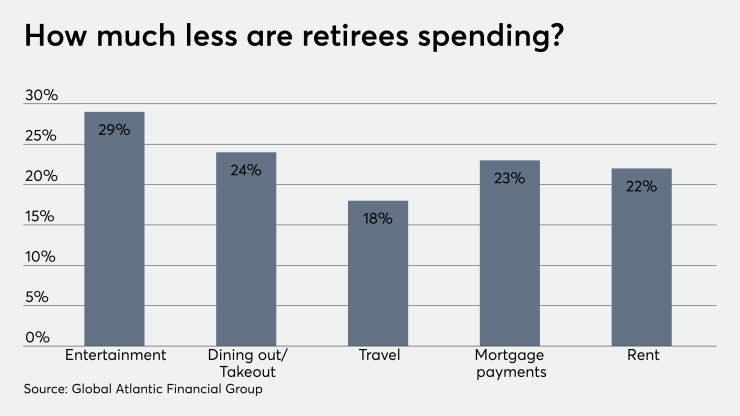Welcome to Retirement Scan, our daily roundup of retirement news your clients may be talking about.
Minor adjustments such as reducing spending, moving to a cheaper location and working longer can help seniors boost their retirement prospects, a Forbes contributor writes. Having a solid investment strategy is important to survive market volatility in retirement, he adds. "Still, the comparisons hold: whether market gyrations can overpower almost any portfolio, in all cases a retiree will benefit by taking less money from a larger pot. Even small adjustments can have a big impact later on."

Helping clients plan for an early retirement may not be easy, but making the right moves would allow them to stay on track, according to this Motley Fool article. For example, they are advised to determine their annual spending to build an effective retirement strategy. They should also have a plan to cover their health care expenses and develop a Social Security claiming strategy that will maximize their retirement benefits.
Many 401(k) participants are misusing target date funds because of their limited understanding of the funds’ function, according to a white paper from benefits-solutions provider Alight Solutions in this article from Barron’s. Many 401(k) investors make the mistake of holding multiple target date funds within their plan. They also invest in target date funds for the short term and resort to making extreme changes to their asset allocation after disposing of these funds.
The correlation between fees and performance is not “apples-to-apples when taking the funds’ underlying exposures into account,” an expert says.
Younger clients are advised to start saving and investing early for retirement to avoid being discouraged by volatile markets, says an expert in this Fox Business article. It pays to remain calm and stick to a long-term investing plan, the expert says. They should also pay down debt, follow a budget and build an “emergency fund of three to six months of expenses,” after which they can start investing 15% of their earnings for retirement, he adds.






